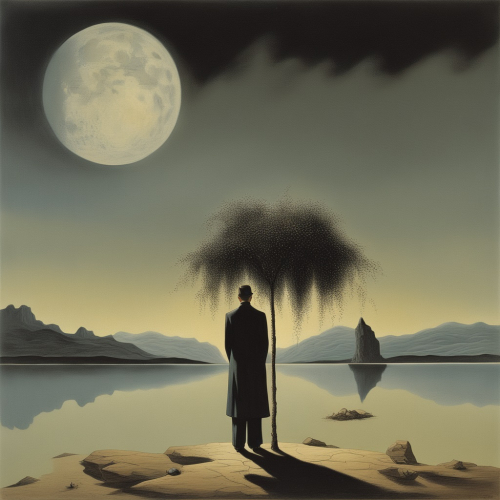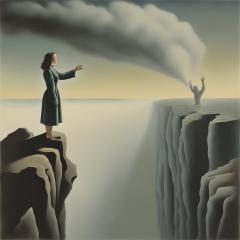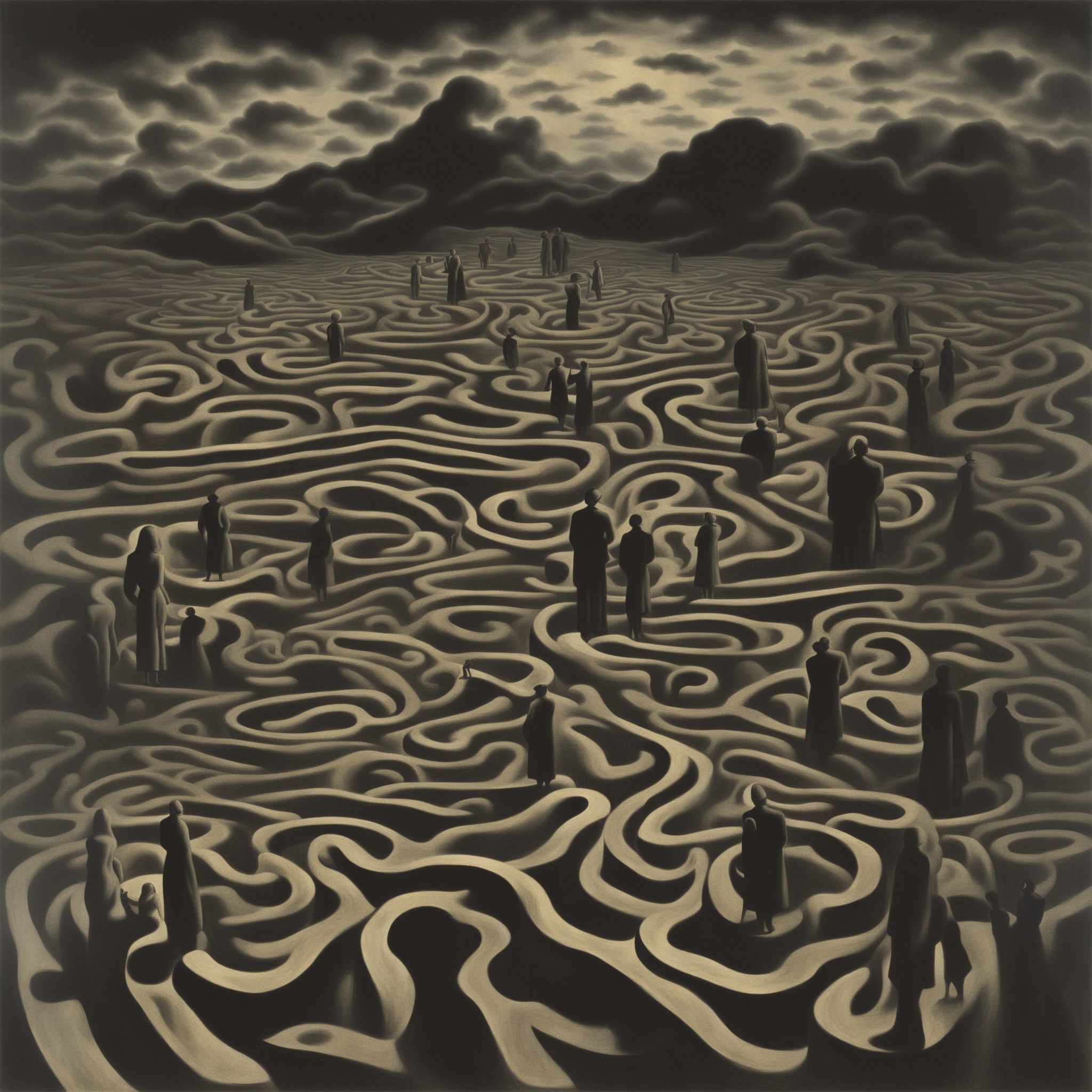Universal Basic Income, Artificial Intelligence and the Arts

2023 is the year A.I. art has spread exponentially. Artists are using A.I. and, whether they are declaring it or not, it’s out there and influencing everyone.
Following on from the 2023 Trades Union Council Congress motion on protecting workers against the use of Artificial Intelligence (A.I.), I believe that we also need to disaster plan for the predictions of the Accelerationists (that technology will replace many human activities). And that companies who use A.I. should provide compensation to artists with a Universal Basic Income (UBI). And then what will people will do if they are provided with UBI, but no work?
To prove that A.I. has outstripped human creativity I used it to create the autobiography and artworks of a deep fake 1940s Surrealist "Antonia Pageta". These works were exhibited, published in a catalogue, and are reproduced in this piece.

The Dreamer's Lament
A lesson of history is that technology replaces people. The 19th century Luddites lost in their protest against the manufacturers' use of machines to replace the skilled labour of textile workers, and despite periodic resurgence of craft skills, e.g. with the Arts and Crafts movement, the march of industrialisation has continued.
The middle-class belief that there will be broad support that the work of lawyers, doctors, curators etc will be ring-fenced against the rise in A.I. is not supported by the experience of precarious "gig economy" workers (such as arts workers) and the unemployed, whose own jobs may be replaced by machines. And the replacement of the art middle class by automation is a danger that should be prepared against. The middle classes needs to join sides with the working and unemployed classes to fight for a Universal Basic Income.

The Bridge Between Worlds
Why? I propose 2 reasons why artist, musicians, actors and writers should receive a Universal Basic Income.
The first is that all artists provide the talent pool, and without the lower levels of artist you wouldn't get the upper, selected artists. A small number of elite artists have been granted most of the public funding available, in a neoliberal model that rejects the economic value of those below. This has been backed by bureaucratic arts funding systems, with artists who are not selected then at an added disadvantage in the marketplace as they have not received an endorsement from arts administrators. As artists only exist because of the network of other artists, so the income of artists should be shared. However, it seems unlikely that high earning "hero" artists are likely to share their income.
The second is that industrialisation has removed (and A.I. is removing) artists' livelihoods, and they need compensation. And if artists are replaced by A.I. then they should receive compensation (from those who have removed their livelihoods). Artists and arts professionals who become replaced can complain but might find little sympathy from the talent pool creatives from whom they have been selected. So, to get a broad support against A.I. we need an alternative model to fund all artists.

The Labyrinth (series)
The fact that many people are artists by vocation, despite poor economic prospects, shows how deep-rooted in their nature being creative is. Instead of companies being seen as deselecting a human “resource” (artists) if they are seen as taking from artists their natural resource (of a livelihood) then they should be provided with compensation. Historically manufacturers have taken the livelihoods and natural mode of being from workers, and as such they should be compensated with Universal Basic Income.
In his 2017 Guardian article Andy Beckett says the Accelerationists argue that computer technology, and capitalism, should be massively speeded up.
Nick Land, (one of the founders of the Cybernetic Culture Research Unit (CCRU)) argues about the “disintegration of the human species” when artificial intelligence improves sufficiently. And for the replacement of nation-states by authoritarian, feudal city states.
Instead of this disintegration Mark Fisher argued that Britain is in a nostalgic stasis. With the same parties in power, struggling for momentum but yearning for the good old days.
In their 2015 book “Inventing the Future” Nick Srnicek and Alex Williams argued for a positive vision of change with equality in an economy based on automation, with the jobs replaced by a universal basic income.
I think that Fisher’s point might be applied to an artworld seeking institutional stasis. And the nostalgia of artists and creatives may put off change temporarily. But eventually we need to steer society to the UBI of Srnicek and Williams rather than be faced with Land’s feudal states.
In the Industrial Revolution skilled workers lost their jobs. In the Technological Revolution many skilled professional and clerical workers will lose their jobs. As well as the middle class defending their working conditions, in the long-term they also need to organise with the working class for Universal Basic Income or risk being left with nothing.

The Dreamer's Labyrinth
I believe that with A.I. set to replace many jobs then the focus should also be on what alternative works or activities those workers should perform. We need a different model of the function of art in society, where it has value in terms of being part of the experiential framework for mental and physical wellbeing in communities and individuals.
A shift to skills and process-based work, like craft and dance, might provide the model for continued meaningful creative activity. With artists as facilitators or enablers of art experiences, therapies and communal activities. With UBI they will have time and space to discover and develop activities that are not replaceable by A.I.
The A.I. images above were generated in Stable Diffusion following prompts. The prompts come from titles and descriptions in the A.I. autobiography of deep fake 1940s Surrealist Antonia Pageta. The autobiography was created in Sudowrite. They have been printed onto canvas and exhibited at Manchester Art Fair 2023, Morecambe Art Fair 2023 and currently at Morecambe Library.

Anthony D. Padgett
Anthony Padgett is an award winning writer and artist and a North West Representative for the Artists' Union England.
